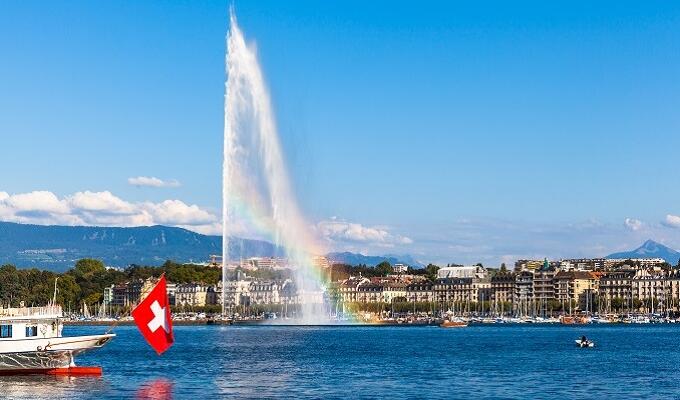

Sustainable development and trade: The importance of multilateralism
This year we are all celebrating both the 75th anniversary of the UN and the 25th anniversary of the World Trade Organization (WTO). The Charter of the United Nations was signed 1945 at the San Francisco Conference. Delegates from 50 states drafted it with the aim of maintaining peace, guaranteeing international security and promoting the development of friendly relations among nations.
It is important to emphasize that the principles on which the UN Charter is based coincide with Swiss values enshrined in the Federal Constitution. Switzerland has distinguished itself in particular in the promotion of international humanitarian law and human rights, as well as in fostering peace and sustainable development. Switzerland is also appreciated for its good offices and its role as mediator in difficult negotiations.
As a member of the UN, we contribute to the resolution of global challenges, which is in the interest of both the Swiss people and the world population.
Multilateralism offers legitimacy to find global solutions
The progress made in several fields and the management of various crises over the last 75 years have shown us that there is no alternative to multilateral cooperation and that none of the great challenges of our time can be addressed by a single state or group of countries. Multilateralism offers unique legitimacy and unparalleled expertise. We must therefore learn from past experiences and further strengthen our capacity to negotiate, decide and act. At the time of the 75th anniversary of the United Nations, the response to the COVID-19 pandemic demonstrates once again the need to act together, to think and innovate to find global solutions satisfactory to all.
The many international organizations present in Geneva are at the forefront of the response to this crisis, in the fields of health, human rights, humanitarian action and trade, among others.
Settle trade disputes through the rule of law
Twenty-five years ago, 128 countries joined forces to create the World Trade Organization. Beyond this multilateral success story, the birth of the WTO was also a victory for international law, because its agreements and dispute settlement mechanism have made it possible to settle hundreds of trade disputes through the rule of law. The predictability and transparency provided by this system had a greatly positive impact on the international economy since that time. The WTO and its rules limit the recourse to protectionism and the law of the strongest. In the short and long term, international trade is therefore an indispensable factor for growth and prosperity. Today, almost all states are members of the UN, 164 are members of the WTO, and their representatives discuss and solve global problems together.
Switzerland is proud to host the European headquarters of the United Nations as well as the headquarters of the WTO. As the host country, we are pleased with the everyday role that International Geneva plays in promoting peace and prosperity across the globe.
Trade as response to global challenges
With regard to Switzerland’s multilateral commitment in the field of trade, we should also mention our collaboration with the International Trade Centre (ITC). This joint agency of the United Nations and the World Trade Organization created in 1964 is entirely dedicated to support micro, small and medium-sized enterprises in developing countries, helping them to connect to the global economy. Its goal is to generate employment opportunities and promote a more diversified and sustainable economy through trade and investment. The support that this organization provides to many small and medium enterprises in fragile economies is crucial in the context of the COVID-19 pandemic.
We are convinced of the important role of trade in the response to the many global challenges, be it the current pandemic, climate change, the decrease in biodiversity, the imperative to achieve sustainable development objectives, or the implications of digital transformation and the future of work. In the coming years, we believe that trade will play an increasing role in achieving sustainable development and poverty reduction. We also need to consider new initiatives on climate change, at the WTO and beyond, to support the implementation of the Paris Agreement.
Trade platforms to exchange strategic ideas
To support states and international organizations in their actions, Geneva offers cooperation platforms that promote exchanges and synergies between them, but also with actors from the academic world, civil society and the private sector. For example, this year saw the creation of a trade platform within the Graduate Institute, which enables trade policy actors to exchange, develop, test and disseminate strategic ideas, based on concrete experiences in the field. Better serving the populations concerned will help strengthen the multilateral system but also the confidence of citizens in it.



